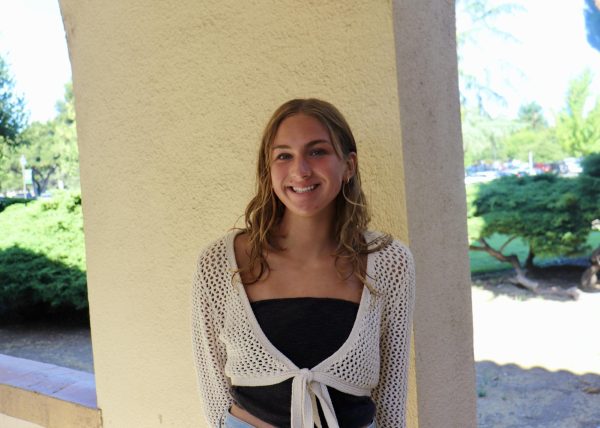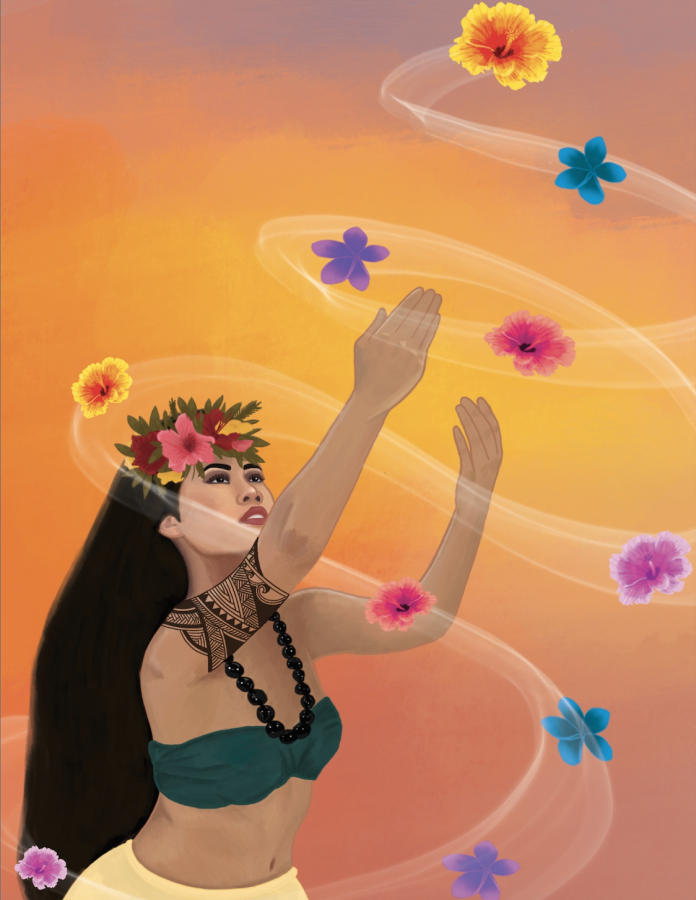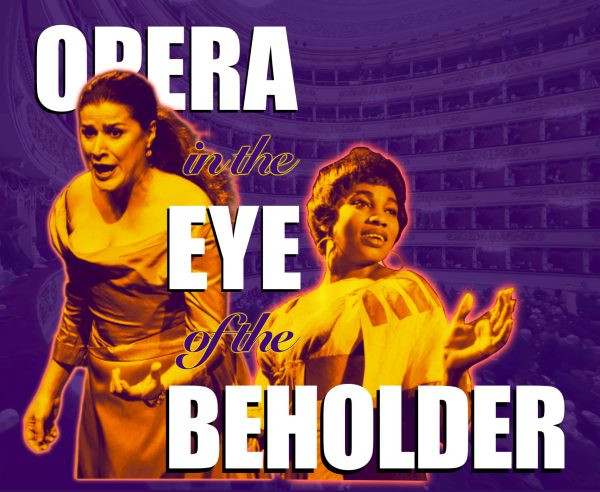Trouble in Paradise
How tourism is taking a toll on the tropical islands of Hawaii and the indigenous culture
Millions of tourists every year share the same look of awe as they pass over the luscious green islands of Hawaii, entering their much awaited vacation. Hawaii has been a popular travel destination for years because of its tropical climate, relaxing beaches and the jaw-dropping beauty of its diverse nature. However, since their stays are temporary, visitors often don’t consider the permanent consequences that their tourism has on locals and the land that they live on.
Nicole Anakalea is a descendant of indigenous Hawaiians and a Hawaiian studies teacher at the Hawai’i Preparatory Academy in Waimea. Both pieces of her identity have helped develop her understanding of the connection between humans and the environment.
“We [Hawaiians] are Polynesian migrants,” Anakalea said. “In our arrival [by sailing], we had to know the oceans, we had to know the currents, we had to know the stars and we had to know the winds. We had to be able to dare and take risks and be scientists, because if not, we would have never arrived and never would have passed the equator.”
The first migrants to Hawaii had to teach themselves how to cultivate and grow their own food in order to sustain themselves since they were the first people to occupy the islands.
Because they had to learn from the islands in order to survive, the first Hawaiians built a connection with the land. That connection evolved into a deep respect and appreciation for Hawaii over time, including a religious system that has a deep influence by nature.
Over 400,000 gods were born from Hawaiians’ relationship with the earth.
“Everything and every creature, whether it’d be an element, a wind, an animal, something in the sea or rain water, all of these things have personalities,” Anakalea said. “We take those personalities and we personify them. We then turn that into a god in that sense.”
Turning every aspect of their environment into something they can worship and pray to strengthens Hawaiians’ bond with nature. However, many outsiders are not aware of this special relationship, leading to many locals disliking those who only travel to Hawaii for superficial reasons.
“We want [visitors] to appreciate and have a better understanding of the place,” Anakalea said.
Yet this understanding and respect of the culture and environment is not on the minds of most tourists who visit.
Palo Alto High School senior Mia Rose Tuifua, president of the Paly Polynesian Club, says there is a deeper reason why tourists should respect Hawaiian land.
“[Hawaii] did not want to be colonized in the first place,” Tuifua said. “So for [it] to abide by tourism rules, especially since [it is] a part of the United States now, [it doesn’t] have a say on who gets to travel to [its] islands.”
Disrespectful actions by tourists towards the islands include touching or getting close to animals, such as sea turtles, using sunscreen that has toxic chemicals which damage coral reefs and taking lava rocks from the island.
While these may seem obviously disrespectful, there are some lesser known detrimental effects that tourists have on Hawaiian culture, some of which Anakalea has experienced.
“They put us in Hula shows and they want to see fire knife dances even though that is not even us [Hawaii], it is traditionally Samoan,” Anakalea said. “Hula is seen as something sexual, which is absolutely not how Hawaiians view it.”
Instead, Hula dancing, according to the Ka’lmi Na’auao O Hawai’i Nei Institute, has been part of Hawaiian culture since ancient times as a way for people to connect to the goddesses.
Although these misconceptions about Hawaiian culture exist and contribute to the deterioration of the land, there are multiple ways to be more eco-conscious and aware while still enjoying your time on the island.
“There’s also a lot of people that just don’t know the general rules of the island,” Mahe said.
This knowledge is easily accessible with a quick search online or on social media, which provides you with millions of sources to explore. These sources not only provide historical information but may also provide suggestions of cultural and environmentally friendly places to visit, including locally owned stores.
When visiting any vacation destination, there are benefits to supporting its small businesses.
“Whenever my family goes there, we try to buy local and not from big corporations that invaded [Hawaii],” Paly junior Rebecca Fakatou, a member of the Paly Polynesian Club said. “The local businesses also provide visitors a more immersive cultural experience.”
People often associate Hawaii with American values and traditions; however, many locals, including Anakalea, think that this mindset is incorrect.
“Welcome to Hawaii,” Anakalea said. “For us, this is not America. We are still Hawaii. Yes, we politically are under the American government, but treat us as our own country. Because if not, you’re not respecting our history. Talk to us as if you respect and you know our history a little bit.”
Print Issue
Please click on the three vertical dots on the top right-hand corner, then select “Two page view.”

2022-2023 Staff Writer
2023-2024 Managing Editor
I joined C Mag as a way to express my creative side and advocate for subjects I am passionate about....







